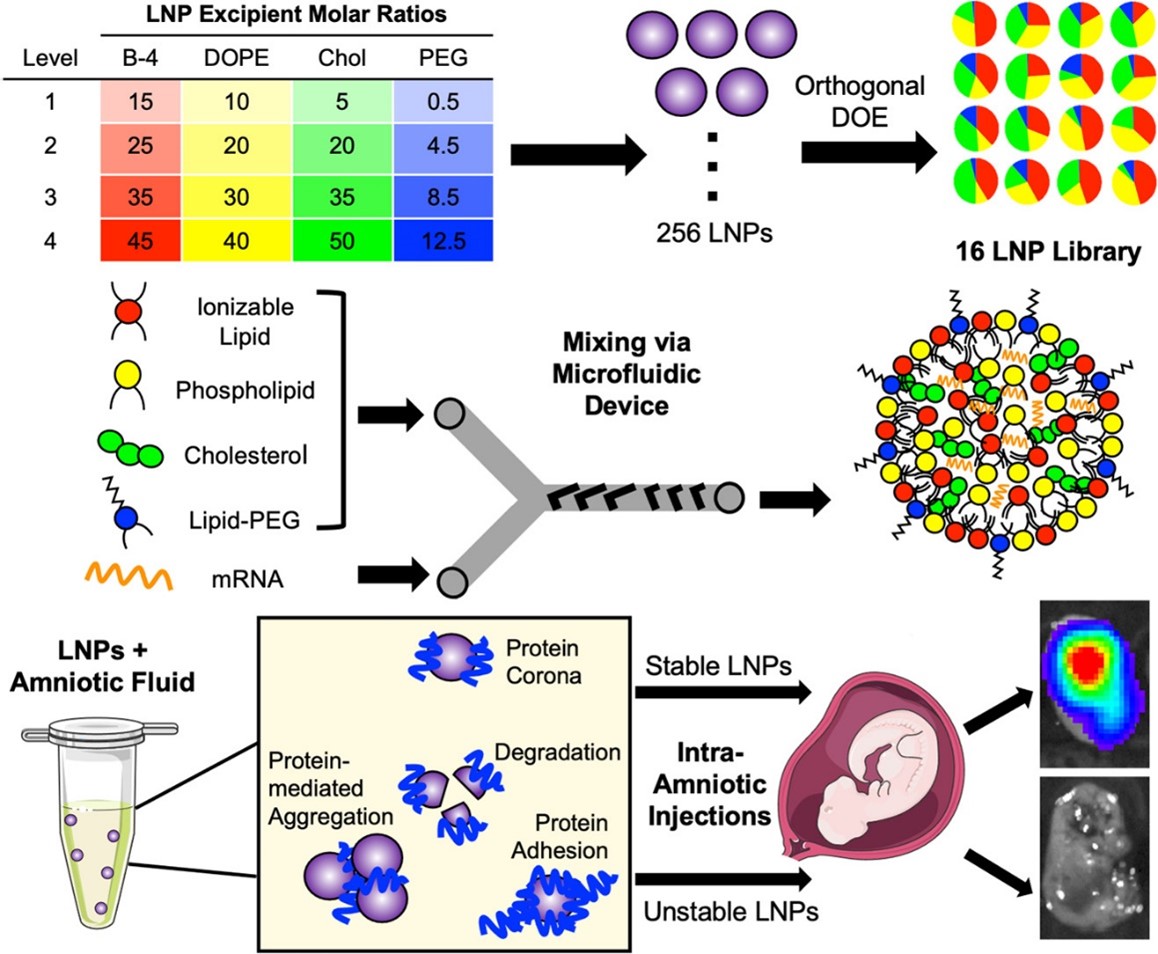Nanoparticles for potent encapsulation and delivery of therapeutic molecules for prenatal fetal therapy in the amniotic sac
Problem:
Many prenatal genetic diseases suffer from ineffective postnatal treatments. For this reason, therapies that are delivered to the fetus before birth hold promise to treat diseases prior to or in the early stages of pathology and reduce disease burden, morbidity, and mortality. Viral vectors can deliver nucleic acids to the fetus for prenatal protein and enzyme replacement; however, they have limitations regarding immunogenicity, genomic integration, and repeat dosing. Non-viral nucleic acid delivery methods avoid these risks yet face challenges with rapid nucleic acid degradation and hindered transport into cells.
Solution:
A lipid nanoparticle nucleic acid delivery system was developed that remains stable upon delivery in utero and potently delivers nucleic acid material intracellularly, providing robust protection and delivery of cargo to fetal tissues in contact with amniotic fluid.
Technology:
Ionizable lipid nanoparticles are made by mixing ionizable lipid B-4, cholesterol, DOPE, and PEG2000 with an aqueous phase containing messenger RNA (mRNA). Both phases are mixed at controlled flow rates in a microfluidic device to generate the mRNA-loaded nanoparticles. The mRNA is tailored to encode for the protein/enzyme of interest required in the fetal tissue. After screening for stability and potency in amniotic fluid, selected nanoparticles are delivered in utero through controlled injection into the amniotic sac.
Advantages:
- Prevents off-target mutations by not integrating with genomic DNA
- Stable in amniotic fluid (from. mouse, sheep, pig, and human)
- Enhanced cellular uptake for potent intracellular delivery of therapeutic cargo
- Achieves nucleic acid delivery in fetal lungs, intestines, liver, and other tissues in direct contact with amniotic fluid

Overview of LNP library design, formulation, and ex utero screening in amniotic fluids to predict intra-amniotic delivery. A library of 16 LNP formulations was generated using orthogonal design of experiments (DOE) to explore four molar ratios of each of four excipients. Next, each LNP was synthesized by combining an ethanol phase of lipid excipients – including ionizable lipid, DOPE phospholipid, cholesterol, and lipid-PEG – with an aqueous phase containing luciferase mRNA. The two phases were mixed at controlled flow rates in a microfluidic device to form LNPs. Then, LNPs were screened ex utero in fetal fluids to identify stable and unstable LNPs for intra-amniotic delivery.
Case ID:
21-9713-tpNCS
Web Published:
5/12/2023
Patent Information:
| App Type |
Country |
Serial No. |
Patent No. |
File Date |
Issued Date |
Expire Date |